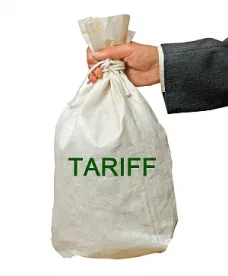When it comes to trade, President Donald Trump and U.S. Trade Representative Robert Lighthizer are not scared to chart an uncommon path. The Trump Administration’s use of Section 301 of the Trade Act of 1974 demonstrates this fact.
Section 301 is a tool that grants the president the authority to impose tariffs and/or other trade-related remedies on countries whose trade practices (1) violate, or are inconsistent with, the provisions of, or otherwise deny benefits to the United States under, any trade agreement, or (2) are unjustifiable and burden or restrict United States commerce. While Section 301 laid mostly dormant for almost two decades, President Trump utilized the authority to initiate high-profile trade actions against China’s intellectual property (“IP”) practices his high-profile trade actions against China’s intellectual property (“IP”) practices (which has resulted in 25 percent tariffs on approximately $250 billion worth of Chinese products); he is using the statute to take action against India again to potentially take action against France for its digital services tax; and he is reportedly considering using the authority to take action against India.
With the United States’ recent use of the statute, all countries, including those in Latin America, would be wise to consider their risk to a future Section 301 investigation. In terms of IP, the Administration flagged in a recent report that problems exist in Argentina, Barbados, Bolivia, Brazil, Chile, Colombia, Costa Rica, Dominican Republic, Ecuador, Guatemala, Jamaica, Mexico, Peru, and Venezuela with respect to IP protection, enforcement, or market access for persons relying on IP. While the Administration has not announced any plans to initiate a Section 301 investigation into these countries, it is important to note that President Trump used concerns over China’s IP practices to justify his broad actions against the country.
Potential Section 301 action is not limited IP, and the potential use of the statute seems to be gaining popularity outside of the Trump Administration. At a recent hearing, Ways and Means Trade Subcommittee Chairman Earl Blumenauer (D-Oregon) raised the prospect of using Section 301 to enforce the labor provisions of the U.S.-Colombia Free Trade Agreement, asking the panel if such an investigation “could make a difference.” Additionally, when Axios recently polled all of the current Democratic presidential candidates, none of them said they would roll back President Trump’s trade actions against China. While the campaigns most likely viewed this as a question about China, they were also implicitly affirming that the President’s use of Section 301 was legitimate.
The Trump Administration’s use of Section 301 has inserted more uncertainty into the global trading system, and this uncertainty may continue beyond 2020 regardless of which party occupies the White House.




 />i
/>i

